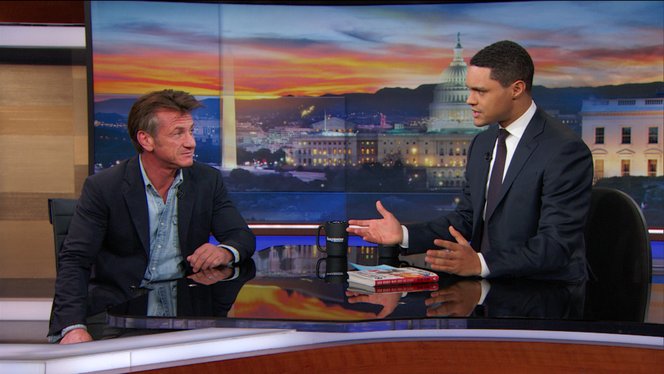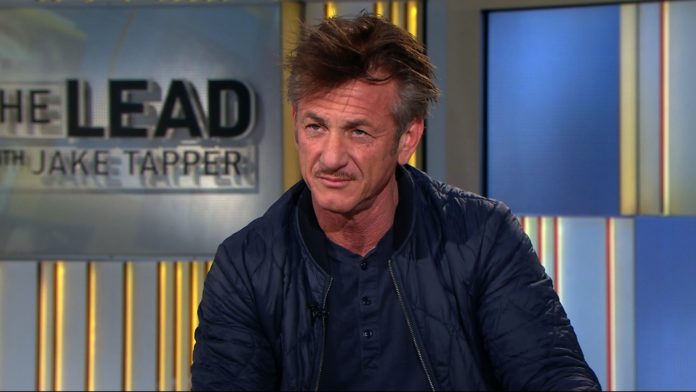By all accounts, Sean Penn is a utility man. He’s an actor, director, Academy Award Winner — and now author with his debut novel Bob Honey Who Just Do Stuff. Called “a riddle wrapped in an enigma and cloaked in crazy” by The New York Times, Penn’s book captures the ironies of American politics and the subtle satire of everyday life.
That’s also a reflection of the book’s main character — Bob Honey, a divorced septic tank worker who also works as an assassin for the U.S. government. The book’s plot, like Penn’s own storyline, is appropriately non-linear as Bob wrestles with his own morals and his country’s changing culture. “America, it seems to Bob, is no longer that beautiful girl who’d birthed him,” Penn writes.
New American Satire
Bob’s character is aloof, and often glaringly angry at the state of his increasingly dystopian world. He hates his ex-wife and her ice-cream truck now husband and craves sex with a much younger woman named Annie. His life is a picture of simultaneous mediocrity and intrigue, which Penn uses his own flare to illustrate.

When an investigative journalist named Spurley comes into the story and start poking around about his work, Bob fears for the worst for his own future and the future of his country. At one point, Bob writes a letter to the landlord, a character with striking parallels to President Donald Trump and the country’s need for a radical change: “You are not simply a president in need of impeachment, you are a man in need of an intervention. We are not simply a people in need of an intervention, we are a nation in need of an assassin.”
But Penn said his don’t need to condemn those in power to make their point. The meaning is deeper. “It lives so much in its own fiction that the outside influences may be clear … and yet the intention of the storytelling would like to think it was going to be there with or without a reference points. Because, at the end of the day, the book isn’t about leadership in our country. It’s about the culture in the country.”
Penn Alludes to Reality
In another scene of the book, five police officers in Dallas are shot and the main character sees it as a reflection on the roll media and authority in society. Even when Bob’s ruthlessness and ethical ambiguity is hard to swallow at times, it highlights the undertones of the society in which he lives. For Penn, this makes Bob that much more real.
The novel partially resulted from Penn’s disillusionment, and dissociation with the culture of the movie industry. It parallels Bob Honey’s story caught between a life as a blue-collar worker and targeted killing machine. He’s deplorable at times, sometimes offensive to a point, but that’s also a reflection of the ways in which his setting has molded him.
Read more: Charlie Sheen #Winning with new TV show?
“I think that there were aspects of this character that have, even within the style of the piece, a kind of moral compass. Obviously, there are … to use the word moral is in contradiction to some of the choices that he makes and some of his activities. But anybody that has a clear view of anything in a chaotic society is going to be up against it and that would give me empathy for them,” Penn said in an interview with Rolling Stone Magazine.
At points, Bob seems defeated. His sometimes-jaded views feel like crippling blows to his own persona, the kind that make even everyday life a struggle. But as Penn describes, this is all closely tied to the environment in which his persona was created. “Bob’s boyhood essence set him up for a separation from time, synergy, and social mores, leading him to acts of indelicacy, wounding words, and woeful whimsy that he himself would come to dread.”
As the connection between environment and character pulls readers deeper into the confusing and complex world of Bob Honey, Penn lets his words sit heavy. Bob Honey Who Just Do Stuff introduces prose that is not guarded nor reluctant in their purpose. Penn’s provocative touch, and perhaps cinematic flare, is in the truthfulness and wry humor with which he points out the ugliness underlying human action.
American Ironies
Bob Honey, emerged during the 2016 election season, and it’s tinged with the same satire that have rocked real life American politics over the past two years. Bob Honey Who Just do Stuff started out as an audiobook narrated by a cast that included Penn and Frances McDormand.
The podcast relies heavily on outrage and satire as the bedrock for its message. The audio version was written under the pseudonym Pappy Pariah who Penn said he met in Florida. In the podcast, Bob is a middle-aged Californian with a dark skepticism about modernity and the mediocrity it entails.
Though he didn’t openly admit to be the podcast’s writer at the time, Penn realized he wanted to expand soon after he finished it. The mystery of Penn’s role in the podcast has been wiped away with his novel, which takes a full-frontal approach to address some of the biggest issues in modern American society. Penn’s comedic satire isn’t just in the storyline, but in his approach to storytelling — likely influenced by his relationship with narrative as an actor and screenwriter.
The pointedness of Penn’s novel is capturing the deafening chaos of America too often exemplified and revered as pop culture. Penn describes this dichotomy as hypocrisy — culture with a grungy underbelly painted with glitzy, but often empty expressions of patriotism.

Described by comedian Trevor Noah as, “a strange story that seems like a metaphor for real life,” sometimes Penn makes his points subtly. But he also has no problem getting down and dirty — bringing in real world, and off kilter events in recent American history. In the epilogue, he talks about the Las Vegas shootings, North Korea and the #MeToo movement.
Through Penn tackles major questions about American identity and the complicated motives behind contemporary social movements. But part of the hypocrisy Penn highlights is the victim’s involvement — the willingness of the public to pander to the shallow expressions of Americanism that are slowly pulling those very threads apart.
Penn’s points are situated in the internet age, with pointed critiques on millennials and generational estrangement, like this quote by a young character addressing Bob Honey: “You think yourself a killer but there’s no one left to kill. Identity is life. The world has replaced its identity with electronics. You, old man — if you don’t mind me calling you that — are from a generation of SELF-love. Our only self is … well … selfies.”
That’s part of his novel’s point — proving the damage contemporary American society and politics has inflicted on its victims, and the actions they take.
“There is an encouragement for any movement that’s going to create social equality to succeed. The other movement, the parallel movement, is by way of increasing superficiality. I tend to question if everybody is just feeling that they’re on the verge of the apocalypse, and so they’re not concerned about their legacy, and they’ll get into a conversation that’s exclusive… If we’re not working toward inclusion, we’re working toward divisiveness, and this is part of what the book takes on,” Penn said in an interview with Vogue.
His writing makes it clear that it’s sometimes impossible to understand how American society is simultaneously robust and completely hollow. “America’s a complex place that’s doing all it can to be without any complexity at all,” Penn told Rolling Stone Magazine.
Read related: New Lifetime Achievement Honorees Announced for 2018 Daytime Emmy Awards
With all that noise, it’s hard not to feel that Penn is being torn down by the weight of life, or using the book to say things he couldn’t in the film industry. And that’s something he doesn’t try to hide in his book’s commentary: “Normalization of commercial compromise had left this medium as one of dominantly irrelevant fantasies adding nothing to the world, and instead providing a perfect storm of merchanteering thespians and image builders now less identifiable as creators of valued product than of products build to significant sales. Their masses of fans as happy as hustled, bustled, and rustled sheep.”
Sean Penn in the Media
In an interview with Marc Maron on the podcast WTF, Penn said the book gave him the outlet he needed to step away from that world. “I saw that my whole engagement was in the struggle.”
Penn said the heaviness of media’s constant bombardment of negativity had palpable effects, not just on his work, but on his entire worldview. Bob Honey Who Just Do Stuff became his way to combat societal burnout that was starting to overpower him. “It was an exercise in avoiding defeat,” he told Maron. “It’s kind of ‘operating world humor,’ because I felt like a surgeon whose patient was inevitable going to die every day. And I thought, let me go practice this in an alternate reality form which got me away from the news for a while.”

Penn started his film career in the 80s and has been fully entrenched in all aspects of the industry. He made his directorial debut ten years later and kept pace for another two decades. He’s thrown his energy behind varied social justice and humanitarian efforts — from on-the-ground rescue during Hurricane Katrina, to vocal opposition against the Iraq war. Other off-screen experiences include interactions with Cuban President Raul Castro and an encounter with Mexican drug lord Joaquin “El Chapo” Guzman.
In his own style, Bob Honey Who Just Do Stuff is the same varied expressions of personality. It’s laden with honesty and boldly defies norms about what topics should and shouldn’t be fair play, most obvious in the poem included at the end of Bob Honey Who Just Do Stuff.
“Where did all the laughs go? Are you out there, Louis C.K.? Once crucial conversations kept us on our toes; Was it really in our interest to trample Charlie Rose? And what’s with this ‘Me Too’? This infantilizing term of the day…Is this a toddler’s crusade? Reducing rape, slut-shaming, and suffrage to reckless child’s play? A platform for accusation impunity? Due process has lost its sheen? But, fuck it, what me worry? I’m a hero.”
The dark humor and poetry is something Penn said helped him power through the reality of the darkness in America. “I think it was probably a necessity of the engine – that which made me need to write a book that, outside the [actual] writing of the book, I wasn’t finding too many laughs.”
Blurring the Edges of Fiction
The novel doesn’t hold back. But at a moment in American history where facts are called fake and the integrity of Americans institutions at risk, that may just be the point. The not-so-subtle ironies Penn uses to make parallels between truth and fiction keep readers on their toes. Bob Honey Who Just Do Stuff calls into question not just the hot topics that Americans like to talk about, but also the way we talk about them.
In an interview with Vogue, Penn said that’s really all there is to this work. It’s even an excuse to make satire of his own “brand” and the way it’s received by the public. “I think that, as long as I can remember, any brand that might be assigned to me, or self-assigned, is a brand that is in a crisis from the perspective of the consumer. And so to be forced into defining a brand—or to be out there hawking a book—I find my own burden of that to be both light and ironic,” he said in an interview with vogue.
Provocation aside, at its core, Bob Honey Who Just Do Stuff is expression. It reflects Penn’s own personality as he muddles through the issues that connect and divide us. And it puts them in a bold and truthful light not so common for those in the public light. The mood of the novel echoes the pent-up anger that’s easily expressed in Facebook comments and group chats but kept hush-hush in more esteemed circles.
That’s why Penn said his novel isn’t trying to be an opinion piece and shouldn’t be seen as such. Bob Honey Who Just Do Stuff is simply a reflection on his own experience of his environment and the constant forces that influence society. Penn’s media interviews about the book have been equally as offhand and unorthodox. That’s satire in itself, to dismantle some of the assumptions that surround public figures and the fame that befouls them.
Read more: Jennifer Lawrence Not Taking A Break From Acting
“I think, we’re in a sad state where fiction is attributed to opinion, where fiction can’t be just read as it is. And I’m very pleased to let less cheerful people dissect it the way that they will – this is fair game. But I think that they are missing the point and probably reading it out of context when they do it. Jumping on a kind of bandwagon, which is extremely … people seek safety and there’s safety in numbers,” he told Rolling Stone.
Penn’s in-your-face satire, may stump some and intrigue others. But that’s the kind of freedom of expression that Penn wants from his book — and from the society that it spends much of its time condemning.
“I think that if somebody influences you, the influence is really in just the excitement that comes of their freedom with words. And that might influence you to find your own,” Penn said. As Sean Penn begins to draft a new novel, Bob Honey Who Just Do Stuff, remains in a genre of its own.
Buy the book:
Up Next on Running Lip:







